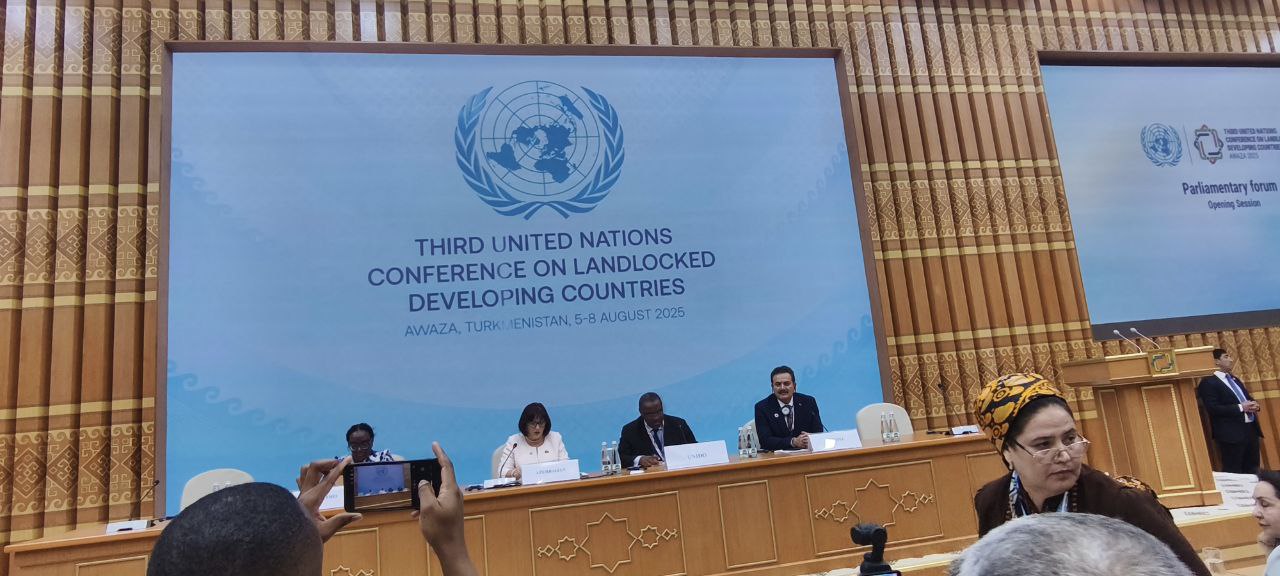Awaza, Turkmenistan | August 4, 2025 — The Parliamentary Forum, a high-level event co-organized by the United Nations Office of the High Representative for the Least Developed Countries, Landlocked Developing Countries and Small Island Developing States (UN-OHRLLS), concluded today in Awaza. Held on the sidelines of the Third United Nations Conference on Landlocked Developing Countries (LLDC3), the forum brought together parliamentarians from across the globe to focus on legislative strategies for accelerating the Awaza Programme of Action (APoA).
The Forum, hosted at Building 3-06 in the Awaza Congress Center, highlighted the critical role of parliaments in implementing the APoA, especially in ensuring effective governance, oversight, and inclusive policy frameworks in LLDCs.
The opening session featured high-ranking representatives from the Parliament of Turkmenistan (Mejlis), UN-OHRLLS, the Inter-Parliamentary Union, and the President of the UN General Assembly. The event served as a platform for dialogue among parliamentarians, civil society, international organizations, and the private sector.
Key discussions were structured around three thematic sessions:
- From Vienna to Awaza — This session reflected on the transition from the Vienna Programme of Action (VPoA) to the APoA, identifying lessons learned and future pathways. Emphasis was placed on legislative reforms, inclusive governance, and strategic partnerships for sustainable development.
- Multilateral Trading System and LLDCs — Recognizing trade as a key driver of growth, this session discussed how parliaments can influence trade negotiations, support digital trade infrastructure, and promote LLDCs’ integration into the global supply chain.
- Peace, Trust, and Accountable Governance — In the spirit of the International Year of Peace and Trust, this discussion focused on institutional reforms, representation of marginalized groups, and building public trust through transparent governance.
The Forum concluded with a call to action, reaffirming the commitment of parliamentarians to the APoA. The closing session summarized key recommendations and emphasized translating the forum’s outcomes into national legislative agendas. These conclusions will be reported at the LLDC3 closing plenary and reflected in its final report.
The event marked a significant step in elevating the role of parliaments as drivers of sustainable development, accountability, and international cooperation in landlocked countries.





Comments